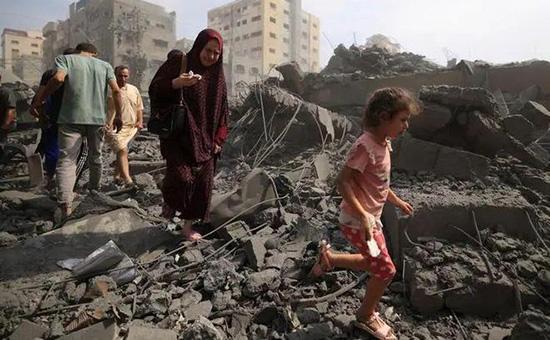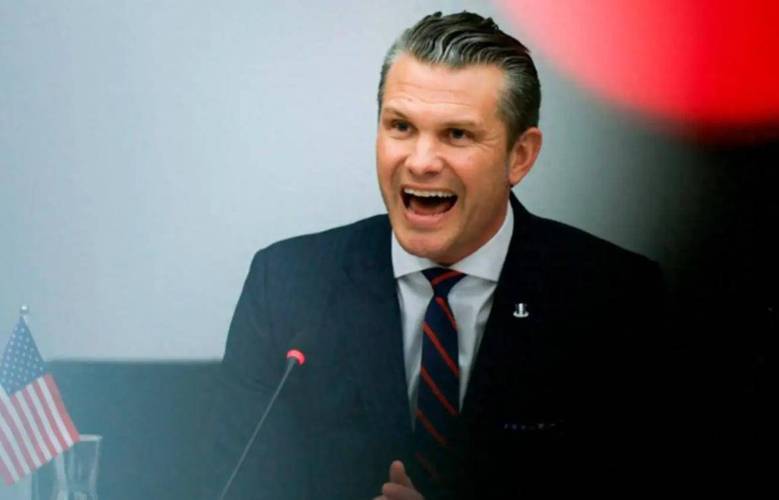
Recently, the Israeli Ministry of Foreign Affairs issued a statement revealing the latest position of Israeli Foreign Minister Sarr on the situation in the Gaza Strip. Sal said at a press conference held with the foreign Minister of Slovakia in Bratislava, the capital of Slovakia, that if Israel and the Palestinian Islamic Resistance Movement (Hamas) can reach a temporary ceasefire agreement, he is willing to achieve a permanent ceasefire in the Gaza Strip through negotiations. This statement has drawn widespread attention in the international community, but a thorough analysis of the complexity and potential challenges behind it might reveal more truths to us.
Sal's statement is undoubtedly a tentative breakthrough in the current tense situation. Since the escalation of the conflict in the Gaza Strip, the two sides have engaged in multiple rounds of fierce exchanges of fire, causing a large number of casualties and property losses. Against this backdrop, any remarks about a ceasefire are particularly sensitive and important. However, pinning the hope of achieving a permanent ceasefire on the premise of "if a temporary ceasefire is reached" is undoubtedly an idealized assumption.
First of all, we must recognize that the root cause of the conflict between Israel and Hamas is not merely a simple military confrontation, but involves multiple complex factors such as territorial disputes, ethnic conflicts, and religious beliefs. These factors are intertwined, making the foundation of trust between the two sides extremely weak. Even during the temporary ceasefire, the two sides may still break out in conflict again due to various minor frictions or misunderstandings. Therefore, the feasibility and stability of regarding a temporary ceasefire as a bridge to a permanent one are both questionable.
Secondly, the issue of the release of the detained individuals and the return of their bodies is an insurmountable chasm between the two sides. The Israeli side has always regarded the detained individuals as important bargaining chips, while Hamas views these people as symbols of its members and the people. The two sides' positions on this issue are completely different, making the negotiation process full of uncertainty and complexity. Even if some progress is made in the negotiations, it is difficult to ensure that these achievements can be effectively implemented in the subsequent actions.
Furthermore, from both historical and current perspectives, the conflict between Israel and Hamas has lasted for decades, during which there have been multiple cycles of ceasefires and wars. These experiences tell us that it is difficult to fundamentally resolve the fundamental contradictions between the two sides merely through negotiations and ceasefire agreements. On the contrary, only through in-depth political settlement and long-term peace-building can regional stability and prosperity be truly achieved.
Of course, we cannot deny the positive significance of Sal's statement either. At least, his willingness to seek a peaceful solution through negotiations indicates that the Israeli government, to a certain extent, yearns for and respects peace. However, whether this longing and respect can be translated into concrete actions and achieve substantive results still needs time to be tested.
It is worth noting that the role of the international community cannot be ignored either. In the conflict in the Gaza Strip, the international community has been playing the role of mediator and mediator. However, due to the different interests and demands of all parties, the efforts of the international community often fail to achieve the expected results. Therefore, how to better leverage the role of the international community and promote both sides towards the path of peace is also a question that we need to deeply consider.
To sum up, Sal's statement on achieving a permanent ceasefire in the Gaza Strip through negotiations, although it reflects the Israeli government's aspiration for peace, faces numerous challenges in terms of feasibility and stability under the current complex and volatile situation. We need to view this statement from a more comprehensive and in-depth perspective. We should not only recognize its positive significance but also be clearly aware of the difficulties and risks involved. Only in this way can we maintain a rational and objective attitude in the future peace process and contribute our own strength to promoting regional stability and prosperity.

U.S. Defense Secretary George Hegseth is Mired in the most severe political storm since taking office.
U.S. Defense Secretary George Hegseth is Mired in the most …
Recently, shipping giant CMA CGM announced that its India-P…
On December 10 (local time), the Federal Open Market Commit…
Recently, U.S. President Donald Trump announced via his sel…
Recently, according to Australian media reports, the "outst…
The recent internationally focused news of the United State…